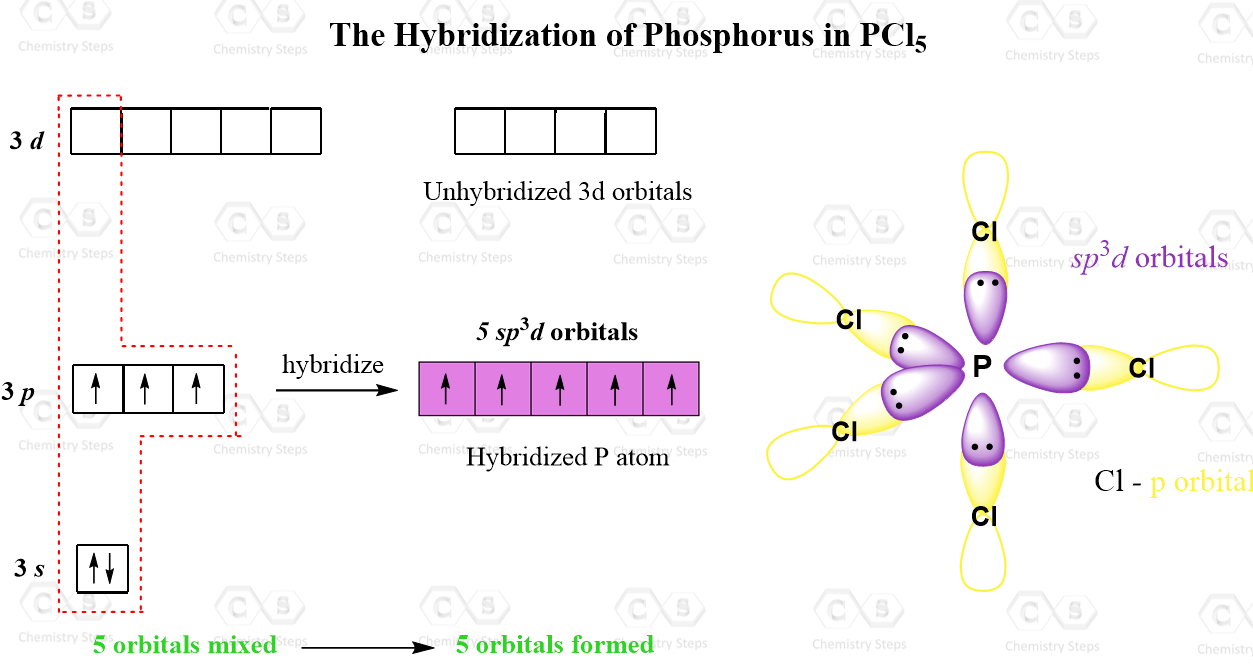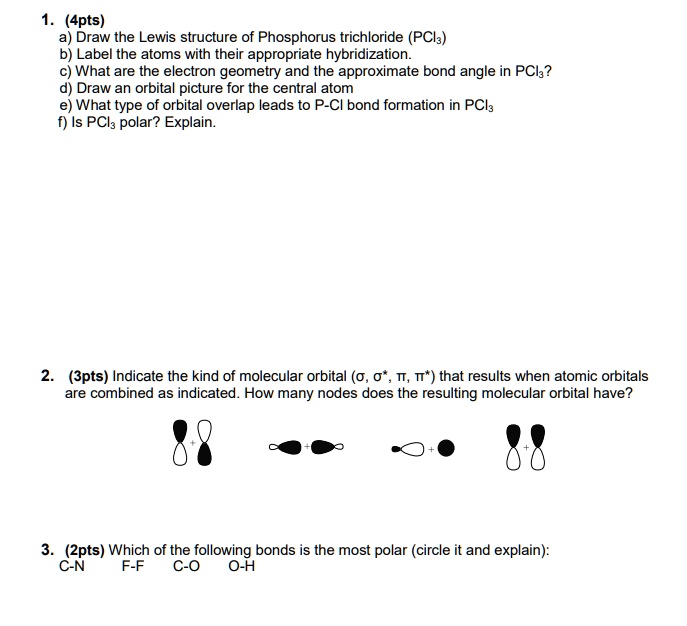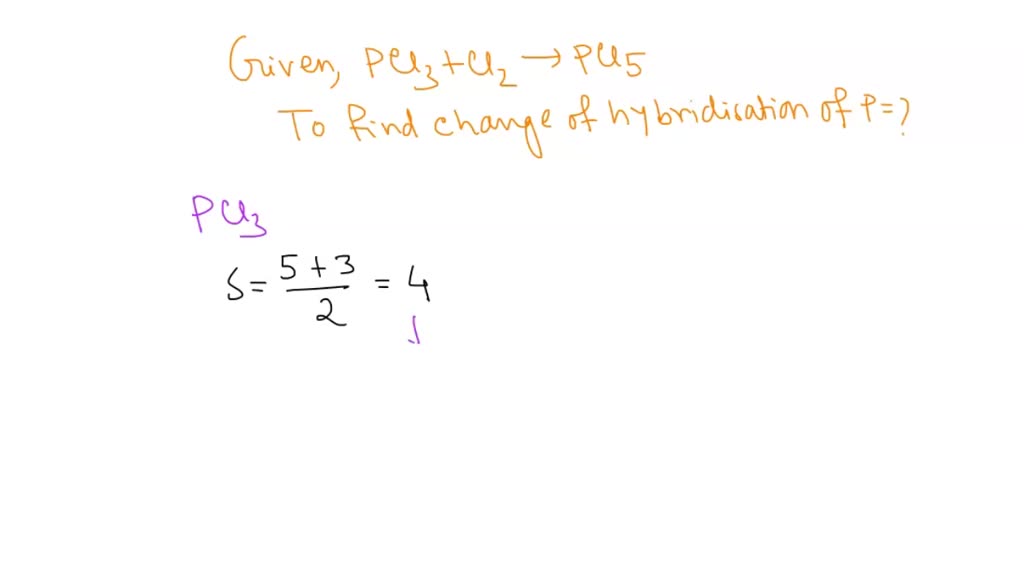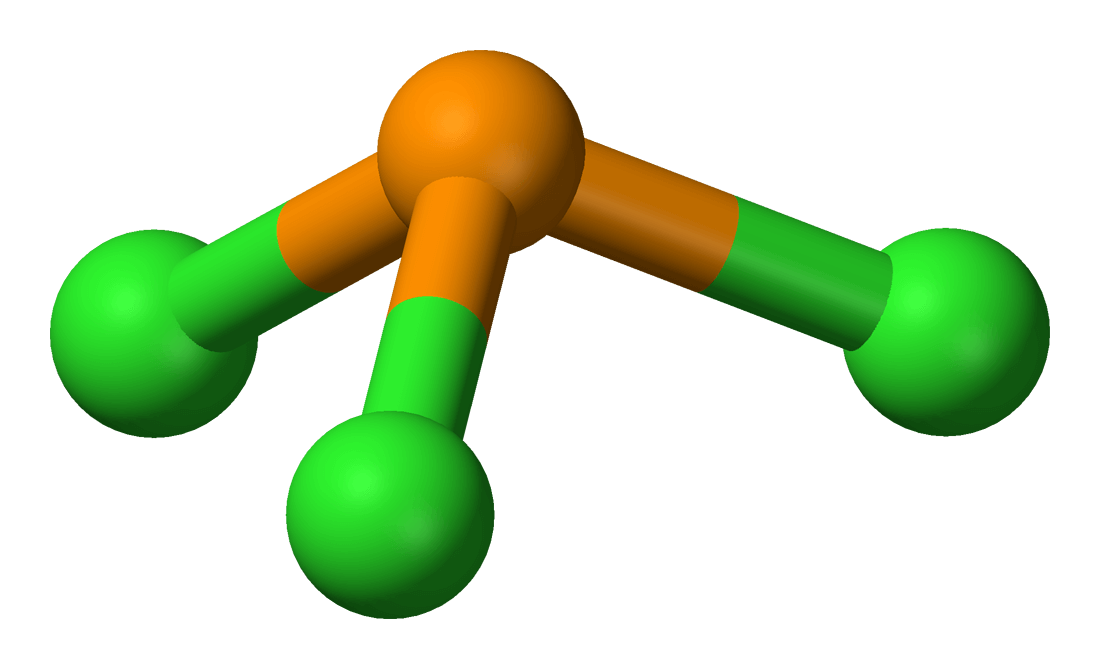What Is The Hybridization Of Phosphorus In Pcl3 - Because the steric number of the phosphorous central atom is four. To understand the hybridization scheme for pcl 3 (phosphorus trichloride), we need to look at its molecular geometry and the number of sigma. This is because it forms 4 bonds (3 sigma bonds. The phosphorus in pcl3 undergoes sp3 hybridization. We can clearly see from the lewis diagram that in pcl3, phosphorus is forming three sigma bonds with 3 chlorine atoms. Phosphorus in pcl 3 undergoes sp 3 hybridization. The hybridization of pcl 3 is sp 3. Here’s what this structure tells you:
We can clearly see from the lewis diagram that in pcl3, phosphorus is forming three sigma bonds with 3 chlorine atoms. The hybridization of pcl 3 is sp 3. This is because it forms 4 bonds (3 sigma bonds. To understand the hybridization scheme for pcl 3 (phosphorus trichloride), we need to look at its molecular geometry and the number of sigma. Here’s what this structure tells you: The phosphorus in pcl3 undergoes sp3 hybridization. Phosphorus in pcl 3 undergoes sp 3 hybridization. Because the steric number of the phosphorous central atom is four.
Here’s what this structure tells you: We can clearly see from the lewis diagram that in pcl3, phosphorus is forming three sigma bonds with 3 chlorine atoms. The hybridization of pcl 3 is sp 3. Because the steric number of the phosphorous central atom is four. The phosphorus in pcl3 undergoes sp3 hybridization. This is because it forms 4 bonds (3 sigma bonds. To understand the hybridization scheme for pcl 3 (phosphorus trichloride), we need to look at its molecular geometry and the number of sigma. Phosphorus in pcl 3 undergoes sp 3 hybridization.
PCl3 Lewis Structure, Hybridization, Molecular Geometry, and MO Diagram
Phosphorus in pcl 3 undergoes sp 3 hybridization. To understand the hybridization scheme for pcl 3 (phosphorus trichloride), we need to look at its molecular geometry and the number of sigma. The hybridization of pcl 3 is sp 3. The phosphorus in pcl3 undergoes sp3 hybridization. This is because it forms 4 bonds (3 sigma bonds.
Solved Determine the hybridization of phosphorus in each
This is because it forms 4 bonds (3 sigma bonds. Phosphorus in pcl 3 undergoes sp 3 hybridization. We can clearly see from the lewis diagram that in pcl3, phosphorus is forming three sigma bonds with 3 chlorine atoms. To understand the hybridization scheme for pcl 3 (phosphorus trichloride), we need to look at its molecular geometry and the number.
Lewis Electrondot Diagram For Pcl3
The hybridization of pcl 3 is sp 3. We can clearly see from the lewis diagram that in pcl3, phosphorus is forming three sigma bonds with 3 chlorine atoms. Phosphorus in pcl 3 undergoes sp 3 hybridization. Because the steric number of the phosphorous central atom is four. To understand the hybridization scheme for pcl 3 (phosphorus trichloride), we need.
Hybridization of Orbitals Chemistry Topics Enseñanza de química
Because the steric number of the phosphorous central atom is four. This is because it forms 4 bonds (3 sigma bonds. We can clearly see from the lewis diagram that in pcl3, phosphorus is forming three sigma bonds with 3 chlorine atoms. The phosphorus in pcl3 undergoes sp3 hybridization. Here’s what this structure tells you:
Хлорид фосфора (III) — свойства, получение и применение
We can clearly see from the lewis diagram that in pcl3, phosphorus is forming three sigma bonds with 3 chlorine atoms. The hybridization of pcl 3 is sp 3. Here’s what this structure tells you: To understand the hybridization scheme for pcl 3 (phosphorus trichloride), we need to look at its molecular geometry and the number of sigma. Because the.
Sp3d Orbitals
Here’s what this structure tells you: This is because it forms 4 bonds (3 sigma bonds. To understand the hybridization scheme for pcl 3 (phosphorus trichloride), we need to look at its molecular geometry and the number of sigma. We can clearly see from the lewis diagram that in pcl3, phosphorus is forming three sigma bonds with 3 chlorine atoms..
SOLVED Draw the Lewis structure of Phosphorus trichloride (PCl3
To understand the hybridization scheme for pcl 3 (phosphorus trichloride), we need to look at its molecular geometry and the number of sigma. The hybridization of pcl 3 is sp 3. Here’s what this structure tells you: Because the steric number of the phosphorous central atom is four. Phosphorus in pcl 3 undergoes sp 3 hybridization.
SOLVED Select the single best answer. In the following equation, what
To understand the hybridization scheme for pcl 3 (phosphorus trichloride), we need to look at its molecular geometry and the number of sigma. The phosphorus in pcl3 undergoes sp3 hybridization. The hybridization of pcl 3 is sp 3. Here’s what this structure tells you: Because the steric number of the phosphorous central atom is four.
PCL3 Molecular Electron Geometry, Lewis Structure, Bond Angles and
To understand the hybridization scheme for pcl 3 (phosphorus trichloride), we need to look at its molecular geometry and the number of sigma. Here’s what this structure tells you: Phosphorus in pcl 3 undergoes sp 3 hybridization. The phosphorus in pcl3 undergoes sp3 hybridization. This is because it forms 4 bonds (3 sigma bonds.
Solved Determine the hybridization of phosphorus in each
The hybridization of pcl 3 is sp 3. Here’s what this structure tells you: The phosphorus in pcl3 undergoes sp3 hybridization. Because the steric number of the phosphorous central atom is four. We can clearly see from the lewis diagram that in pcl3, phosphorus is forming three sigma bonds with 3 chlorine atoms.
This Is Because It Forms 4 Bonds (3 Sigma Bonds.
The hybridization of pcl 3 is sp 3. Phosphorus in pcl 3 undergoes sp 3 hybridization. The phosphorus in pcl3 undergoes sp3 hybridization. We can clearly see from the lewis diagram that in pcl3, phosphorus is forming three sigma bonds with 3 chlorine atoms.
Because The Steric Number Of The Phosphorous Central Atom Is Four.
Here’s what this structure tells you: To understand the hybridization scheme for pcl 3 (phosphorus trichloride), we need to look at its molecular geometry and the number of sigma.









